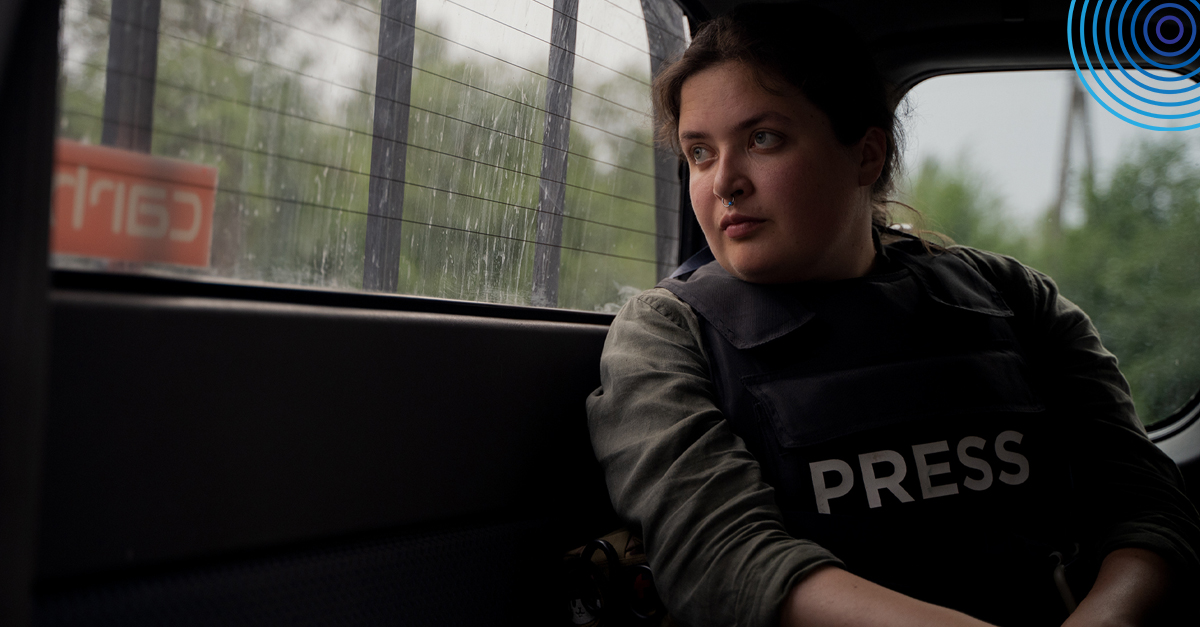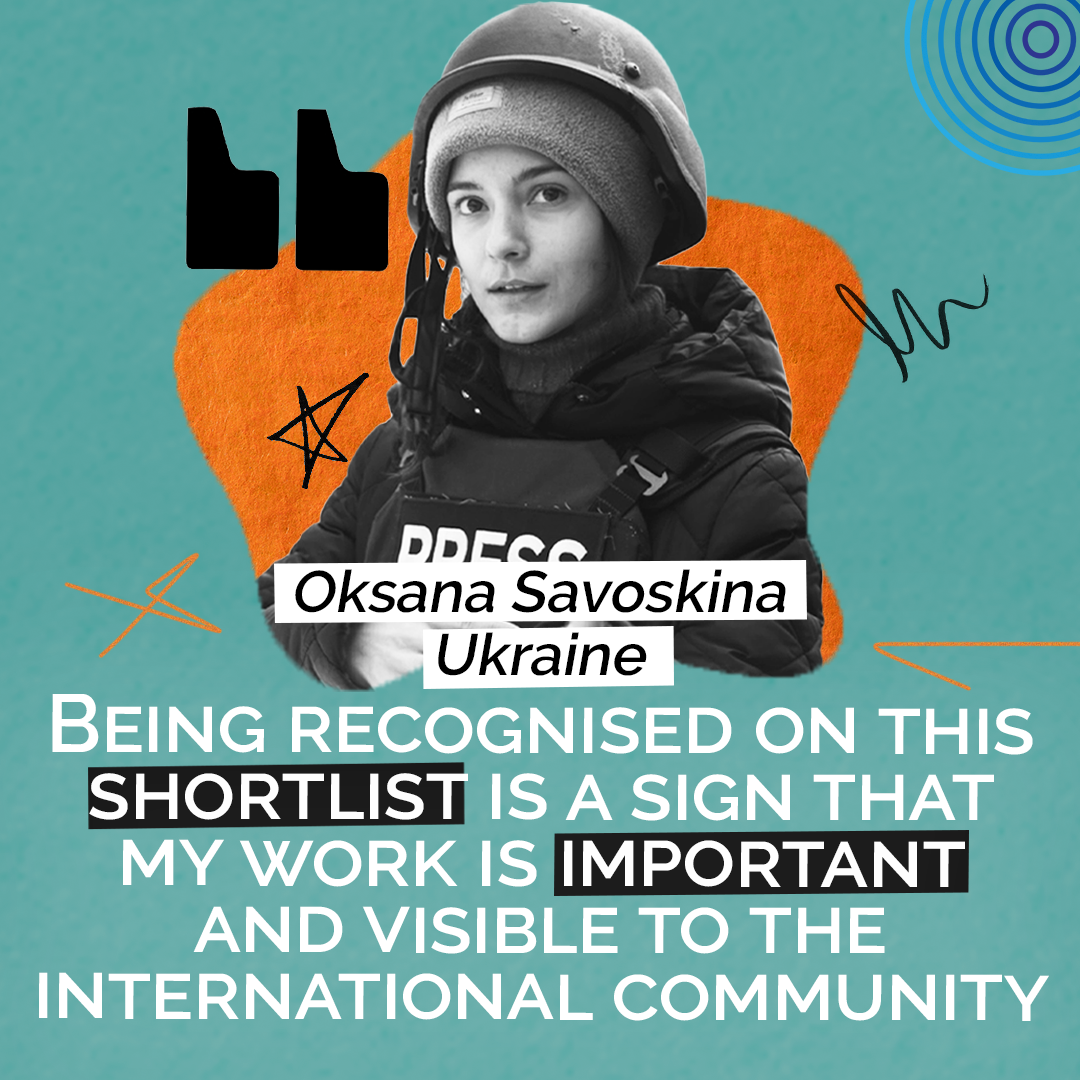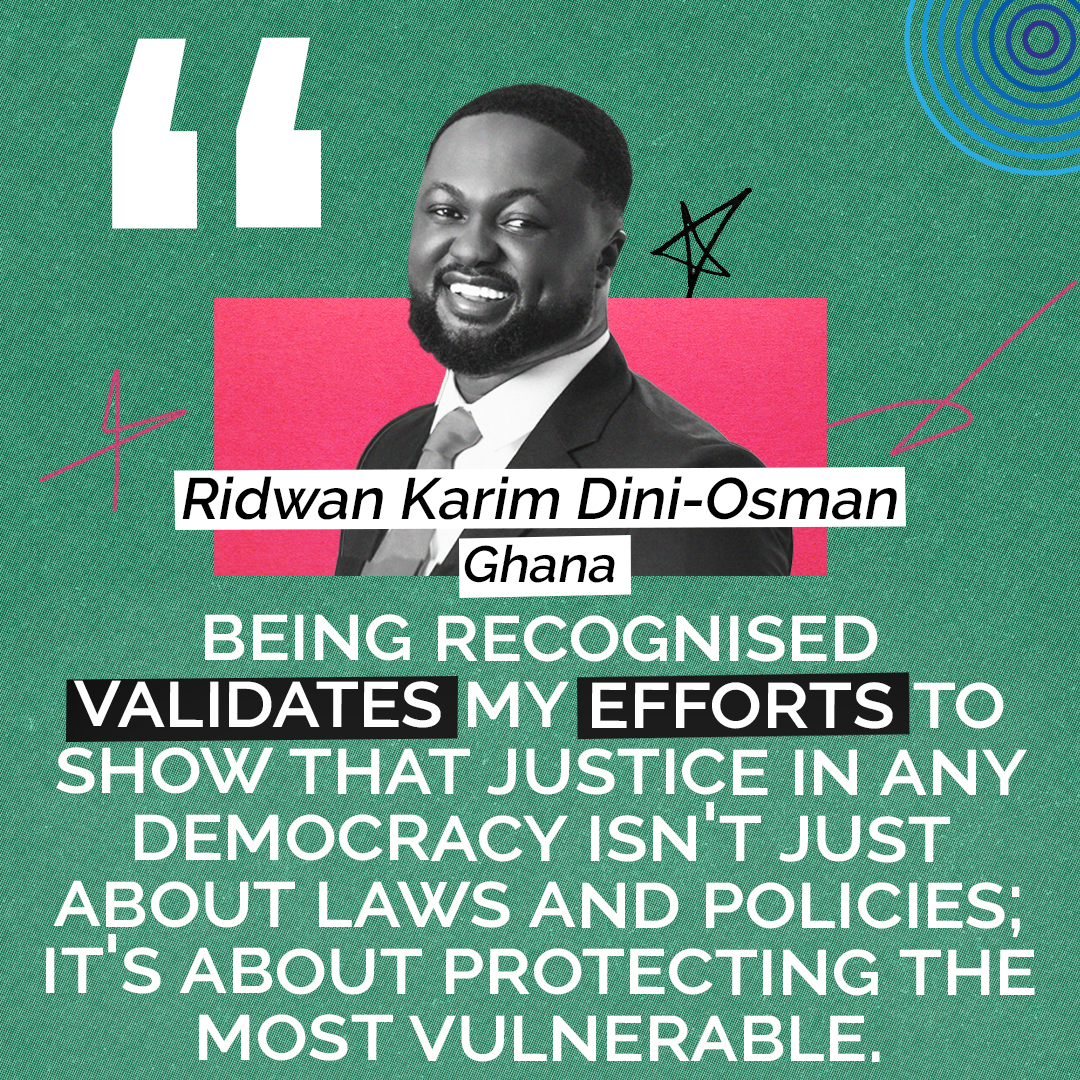Courageous journalism showcased as shortlist for Young Journalist Award 2024 announced
Reporting from a female journalist who is working in secret due to Taliban restrictions in Afghanistan, hard hitting reports on the ongoing conflict in Ukraine and stories exposing human rights violations in Yemen and India, are among the 12 entries by journalists shortlisted for the Thomson Foundation Young Journalist Award 2024.
The Afghan reporter, who needs to remain anonymous to protect her safety, writes for The Afghan Times which was founded by Afghan women journalists in exile. She joins 11 other brave and talented journalists in this year’s shortlist, some of whom are also going to great lengths to tell important stories.
It was exceptionally difficult to whittle down what was an impressive array of fearless and brave journalism.
As well as Afghanistan, this year’s top 12 entrants for the prestigious award are from Ukraine, India, Nigeria, Yemen, Ghana and Pakistan. They were chosen from almost 300 entries.
“It was exceptionally difficult to whittle down what was an impressive array of fearless and brave journalism,” says investigative journalist Amardeep Bassey, who joined the judging panel this year.
Amardeep, who is also a senior lecturer in the Investigative Journalism MA course at De Montfort University in Leicester, UK, says all of them are ‘winners’ in his eyes.
The 2024 Top 12
On hearing she’s made the shortlist, the reporter from Afghanistan called it an honour, ‘and a reminder of the strength of Afghan women’.
“This recognition fuels my commitment to give voice to those whose stories are being erased', she says. Living in a country where the Taliban restrictions on women’s freedom extends to a ban on them speaking in public, her work exposes the reality of life for women and girls such as this story on the lack of access to toilets and sanitary products after the country was hit by severe flooding.
The war in Ukraine also features heavily in this year’s competition. Oksana Savoskina’s film, broadcast by the independent media company Hromadske, captures the terror and chaos as hundreds of people try to evacuate a city which is under Russian bombardment. Oksana is joined in the top 12 by another Ukrainian journalist, Anastasiia Ivantsiv from Suspilne News who gained access to a psychiatric ward in Kyiv to tell the story of the soldiers being treated there.

Anastasiia Ivantsiv
Rarely heard voices recounting their harrowing experiences also feature in the top 12 shortlist. In Yemen, Hashed Alshebli tells the horrific story for the independent online platform Khuyut of an eight-year-old girl who was married to a 45-year-old man. The child has since been rescued.
Qosim Suleiman of the Premium Times goes to northern Nigeria to speak to people living in rural communities where bandits are attacking health facilities and workers and creating ‘medical deserts’.
In India, freelance journalist Sarah Aziz exposes the extent of custodial rape of women in prisons in West Bengal in a report in The Guardian while freelance journalist Ridwan Karim Dini-Osman from Ghana, presents a radio report for The World in which he talks to LGBTQ people struggling to access health care in Malawi and the ongoing conflict in the Indian state of Manipur is retold through the eyes of a 17-year-old girl who’s living through it in a documentary made by Jyoti Jangra for Newsreel Asia.


Uncovering worker exploitation is another theme with Ayomikunle Daramola going undercover in a plastics factory in Nigeria to expose the horrendous conditions, for his report in The Cable. In Pakistan, Aisha Farrukh of the digital news platform The Centrum, tells the stories of brick kiln workers who are bonded labourers, a practice human rights activists have called modern day slavery.
Indian freelance journalist Srishti Jaswal who spent more than six months tracking messaging activity in WhatsApp groups in a remote Indian town, uncovered an extensive political campaign operation by Prime Minister Narendra Modi’s BJP party free from public scrutiny. Her report published by Rest of World was in collaboration with the Pulitzer Center’s AI Accountability Network and Princeton University’s Digital Witness Lab. Another detailed story which took more than a year to research was a creative data-driven investigation into enforced disappearances in Balochistan by freelancer Somaiyah Hafeez for Kontinentalist.
The final judging
The three finalists for the award will be chosen from the shortlist of 12. This year’s judging panel are Enrique Rubio, London Bureau Chief, Agencia EFE (Spanish news agency), Simon Bradley, Broadcast camera journalist, Nippon TV and Antonella Zangaro from Il Giornale, Italy.
The winner will be announced at the Foreign Press Association Awards in London, UK on November 25, 2024.
The Young Journalist Award
The annual award, now in its twelfth year and held in partnership with the UK Foreign Press Association (FPA), is open to journalists aged 30 and under from countries with a Gross National Income (GNI) per capital of less than USD 20,000.